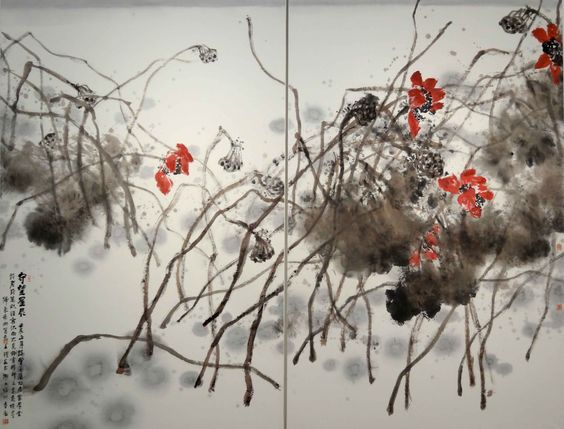Of all that I have learned, the most important lesson was how much a human can suffer. When I was twenty five I wound up in the hospital for three months. I spent days screaming, in so much pain that morphine couldn’t handle it. For about a month I couldn’t move enough to even pull myself up in bed without crippling agony. Later my body decided that every foreign substance was an enemy, and when I was given IV antibiotics, every four hours, I’d spend the next twenty minutes dry heaving, since I couldn’t eat or drink and had nothing to bring up.
It turned out I was one of those people who get psychotic episodes from high doses of steroids. One episode was so bad, prior to hospitalization, that I promised myself I’d commit suicide if it didn’t end in twelve hours.
Strangely, as much physical pain as I experienced, the bad psychotic episodes were worse.
After I got out, I had about a period of about a year where I’d wake up every morning with the muscles in my lower back extraordinarily tight, and the least movement would make them seize up: both painful and crippling. I once ate breakfast at a restaurant standing up because I knew if I sat down I wouldn’t be able to get back up. Another time fire fighters had to break down my door and take me to the hospital: I couldn’t get out of bed.
It took me years to recover, and the recovery was never complete. I never regained the easy athleticism of my teens and early twenties: I had been a serious runner and a gymnast, and I loved both and I never got that back.
This isn’t primarily “woe me.” It was terrible, but others have had it worse, though I certainly had my bouts of self-pity.
What I learned was that the human capacity to suffer is damn near endless. It’s way beyond anything which could be considered “useful for survival” since at a certain point it becomes crippling.
I also learned, not only from my own experiences, but from watching others, that it has nothing to do with “deserve.” The worst people in the world often have really good lives. Kissinger is a good example, but there are many, many others.
The human body and mind are capable of experiencing Hell for very long periods. The same, I am sure, is true of animal bodies and there’s evidence coming in this is probably true of many plants, including trees.
This isn’t to deny that life can be good or even great. I’ve experienced some of that end of experience as well: both physically when a young athlete and in the past ten years as a result of meditation and cultivation.
And I’ve been in love and that was marvelous.
But, bottom line, life can be Hell and most of us will experience it at some point in our lives. No one deserves the worst suffering: I wouldn’t inflict on Hitler the worst of what I’ve gone thru, and suffering appears to make people worse, not better, somewhat more often than it ennobles them. Suffering can lead good places, but it isn’t necessary, and the worst suffering is largely pointless.
In all of this all we have is each other. We can decide to be predators, to prey on those who are suffering or weak and to not give a damn. We can rape and torture and steal from the weak. We can hoard resources so that those who need them most don’t have them, and enjoy the luxuries and pleasures of wealth.
Or we can decide to be kind and to look after each other. At least when I was sick and in hospital I had free health care and doctors and nurses and orderlies who were trying to help. (Had one who was trying to hurt, too, but he was a minority of one.)
There is so much suffering in the world, and so much hoarded wealth and deliberate cruelty. So many humans, especially powerful humans, making the suffering worse or hoarding and accumulating wealth which could help others.
And beyond alleviating suffering, we could help each other be happy and joyous.
No one is going to help us but us. The route out of Hell, the route to making Earth less hellish, not just for us but for the others who are also here, is simple kindness at scale. Only we can make life worth living: not just alleviate suffering but make it fun and great for each other.
Alone we are weak, together we are immensely strong. We can decide to use that strength in service to each other, to make the world so much less a Hell and so much more a Heaven.
And really, that’s my only wish for us.


